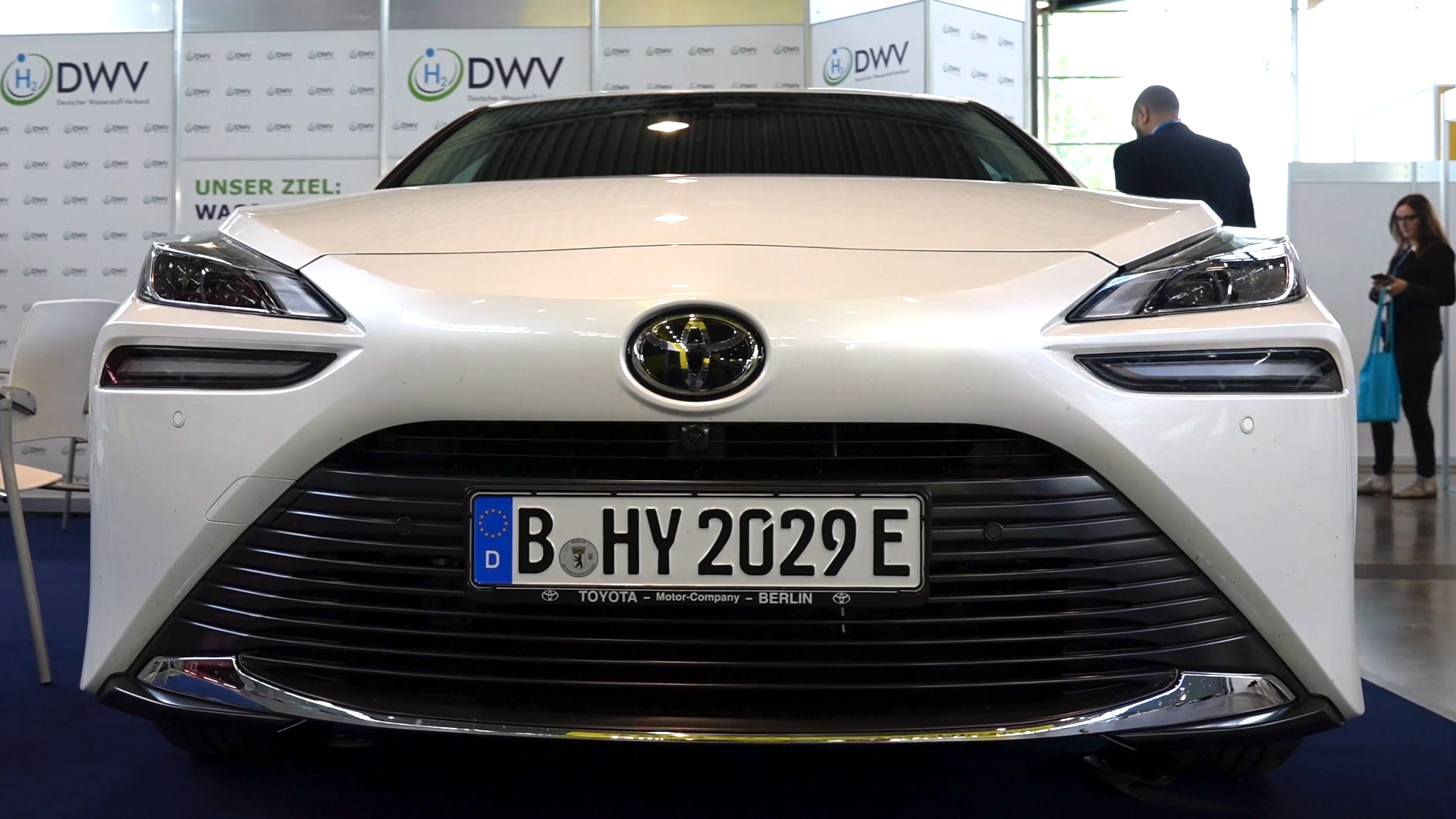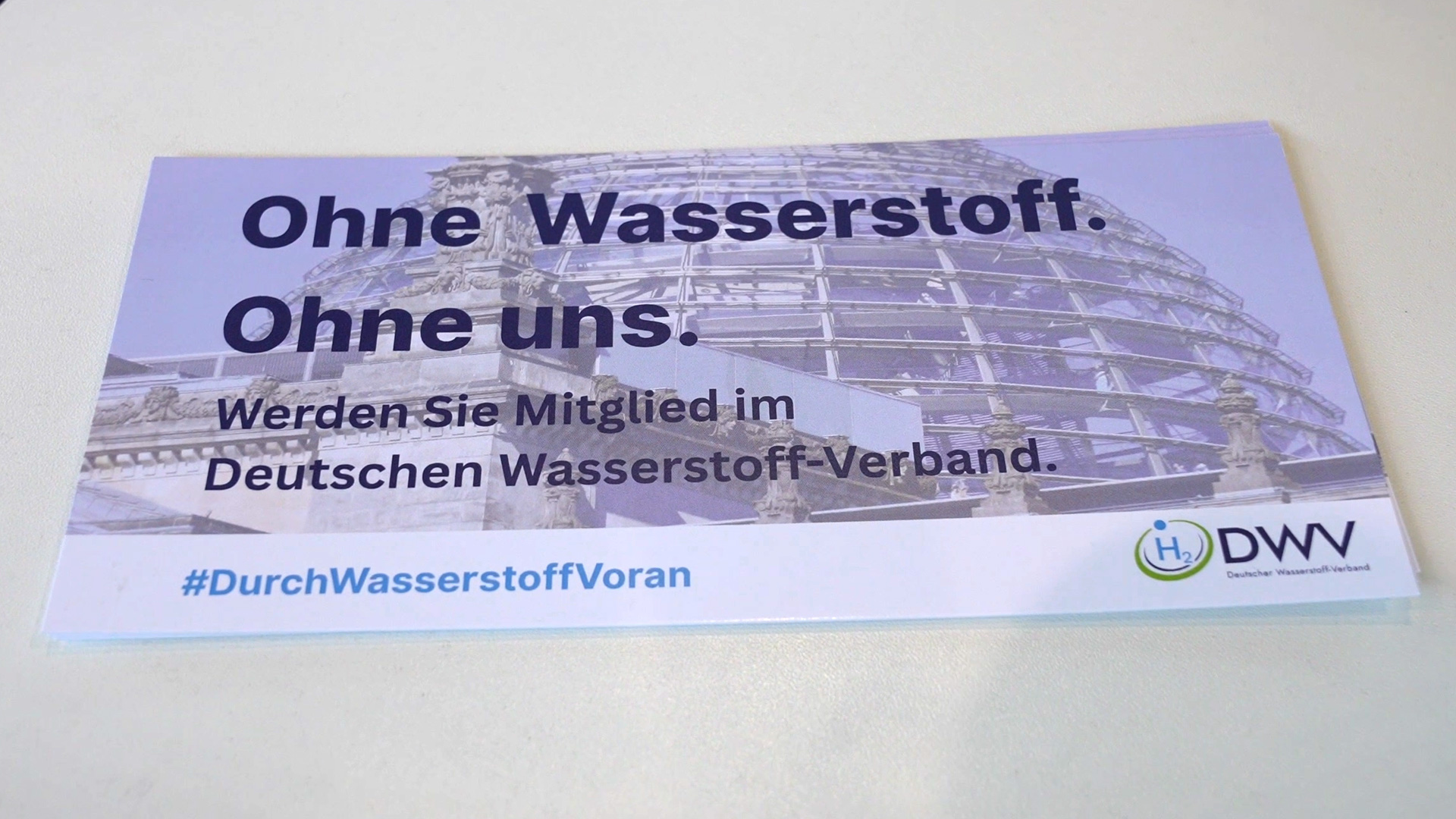For decades, the German Hydrogen Association (DWV) has represented the interests of the entire hydrogen industry in politics, business, and society. With over 600 members from all areas of the value chain, the association pools knowledge, connects players, and advocates for the right framework conditions for the ramp-up of a sustainable hydrogen economy. Its goal: to establish hydrogen as a cornerstone of the energy transition. The association's work focuses on the question of why the economic ramp-up of hydrogen has stalled so far and what adjustments need to be made to achieve a breakthrough. The DWV collects findings, formulates joint positions based on them, and incorporates these into political decision-making processes in a targeted manner. The aim is to identify regulatory hurdles, develop clear recommendations for action, and shape political dialogue with well-founded arguments.
In addition to its political work, the DWV specifically promotes exchange between business, science, and politics. Formats such as the parliamentary evening or the “Hydrogen Economy Talks” in Berlin create direct opportunities for discussion on topics such as approval procedures, funding mechanisms, and import strategies. In particular, the regular breakfast meetings at the German Parliamentary Society have established themselves as an important meeting place. This practical dialogue creates a better understanding of the industry's requirements, which accelerates political decisions and supports the implementation of the hydrogen strategy. At the same time, the DWV offers its members a strong network for cooperation and knowledge transfer.

The DWV repeatedly emphasizes the central role of hydrogen in the energy transition. This is because hydrogen is more than just an energy carrier—it connects the electricity, heating, and industrial sectors. The technology has already reached market maturity in many areas or is close to doing so. Electrolyzers, fuel cells, and storage solutions are no longer visions of the future, but part of industrial pilot and large-scale projects. Hydrogen bridges the gap between electricity generation and consumption by storing surplus energy from wind and solar power and making it available again when needed – whether through reconversion into electricity, in the transport sector, or in industrial processes. This flexibility makes it the link in a networked, renewable energy supply. The DWV's message is clear: an energy transition without hydrogen is not possible. Green hydrogen makes it possible to shift renewable energy seasonally, decarbonize industrial processes, and replace fossil fuels in the long term.
There are already areas of application in which hydrogen is making a measurable contribution to reducing emissions. In refineries, green hydrogen is replacing the gray hydrogen based on fossil fuels that was previously used. This reduces the CO₂ content of fuels, which directly contributes to meeting greenhouse gas reduction quotas. The steel industry is considered one of the largest potential customers. Here, the use of hydrogen instead of coke or natural gas can drastically reduce CO₂ emissions. Despite technical challenges, many companies are sticking to this transformation – thanks in part to the support and political work of the DWV.

Another key area is mobility. In heavy-duty transport in particular, hydrogen offers a realistic alternative to battery-electric drives due to plannable routes and the possibility of central filling stations. In addition, hydrogen is playing an increasingly important role in the chemical industry, for example in the production of synthetic methanol, which serves as a base material for numerous chemical products. The DWV sees all these areas as proof that the technology works – and that scaling up is now a question of political will and willingness to invest.

Another focus of the association's work is the issue of security of supply. Germany will continue to be dependent on energy imports in the future – this also applies to hydrogen. Nevertheless, domestic production plays a crucial role in reducing dependencies and building resilience. The DWV emphasizes that onshore and offshore production capacities must be consistently expanded. At the same time, the association advocates close cooperation with European partners such as Spain, which have ideal conditions for the production of green hydrogen. In addition, international partnerships should also be established with regions that are already strategically focused on the export of hydrogen and its derivatives. According to the DWV, a broad-based energy supply based on diversity, security, and sustainability is the foundation for the success of the energy transition. Hydrogen will become the connecting component between sectors – both nationally and internationally.